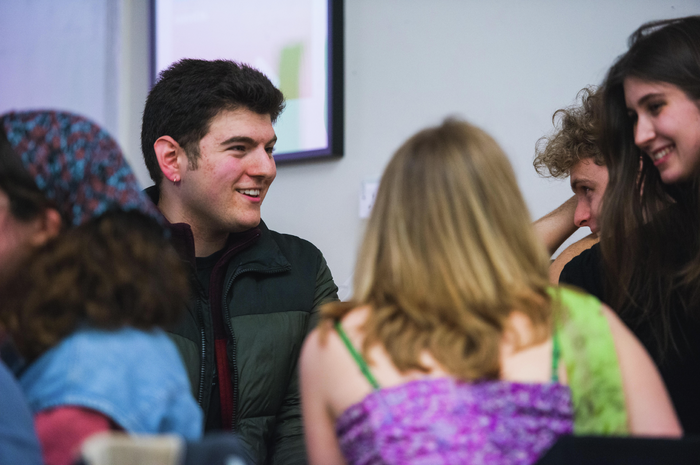Analysis: What happened to the ‘No’ campaign?
SU referendum organisers named a student to lead the ‘No’ campaign despite him telling them that he didn’t want the job

The referendum result comes after a campaign period where the official No campaign took little public action to make their case.
There were no representatives from the No campaign at Monday evening’s hustings to debate the issue, and a text supporting their case was only uploaded to their dedicated campaign space on the SU website on Wednesday (02/03), just one day before polls closed.
Both sides were allocated a campaigning budget of £100, the same amount given to SU election candidates.
Although he was listed as the official leader of the No campaign, first-year student Stelios Sycallides told Varsity that he had never intended to take up this role; while he expressed an interest in being a part of the campaign, he told referendum organisers that he did not feel he could commit to leading the campaign due to his degree workload.
In an email seen by Varsity, Sycallides was told by referendum organisers that he had nonetheless been named the official leader of the campaign by the SU’s democracy committee, as he was the only person to volunteer to be involved. They acknowledged that Sycallides had said he could not take on the role, stressing that this just meant he would be “the point of contact for the No campaign for the SU”, that he would have the authority to “approve spending from the budget we will give the No campaign”, and that he was free to recruit other campaign members to work with.
Despite a lacklustre official campaign against the reading week, students have taken to social media to voice support for this side of the debate, with students using Camfess to outline the potential negative consequences of the change.
One Camfessor has argued that a mid-term break would benefit different degree subjects unequally; they say that while “the design of most humanities degrees means that there are clear pros for a reading week”, they believe that “for STEM degrees [...] it will only make things worse.”
Concerns were also raised about subjects in which supervisions are normally held outside of Full Term, the possibility of paying extra rent, and the possible negative effect of fewer residence days outside of term time on international students.
In an effort to recruit members for the No campaign, SU representatives were seen commenting under Camfesses, encouraging people to get in touch if they wished to officially campaign for this side of the debate.
The discussion on the anonymous confessions platform eventually pushed Olivia Taylor, a finalist studying PBS at Clare to write up the arguments for the case against the reading week: she told Varsity that despite not feeling “particularly strong either way”, she decided to get involved with the campaign “for the sake of balance”.
In response to concerns about the contrast between the two campaigns, the Democracy Committee released a statement on Thursday (03/03), saying that they received “more applications to lead the Yes campaign than the No campaign” and that they took “extra steps to try to recruit No campaigners.”
They added: “That’s not to say that the way we have engaged students in the referendum is perfect [...] However, we are confident that the referendum has been conducted fairly and we have faith in its results as an expression of student opinion on this important issue.”
 News / Academics lead campaign against Lord Browne Chancellor bid2 July 2025
News / Academics lead campaign against Lord Browne Chancellor bid2 July 2025 News / Clare students call on College to divest3 July 2025
News / Clare students call on College to divest3 July 2025 Lifestyle / It’s pretty fun to talk to strangers3 July 2025
Lifestyle / It’s pretty fun to talk to strangers3 July 2025 Science / It’s only rocket science, Elon3 July 2025
Science / It’s only rocket science, Elon3 July 2025 News / Join Varsity‘s editorial team this Michaelmas23 June 2025
News / Join Varsity‘s editorial team this Michaelmas23 June 2025









